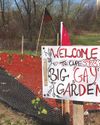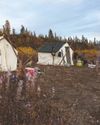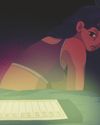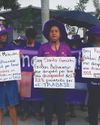
We’re in the ninth year of Briarpatch’s Writing in the Margins contest, where we invite our community to bring to life issues of social and environmental justice through poetry, photography, and creative non-fiction. Winners are published in Briarpatch Magazine and receive $500 in prizes; runners-up are published on briarpatch magazine. com and receive $150.
This year’s creative non-fiction entries will be judged by Joshua Whitehead. Joshua is an Oji-nêhiyaw, Two-Spirit member of the Peguis First Nation (Treaty 1). He is the author of the novel Jonny Appleseed (Arsenal Pulp Press, 2018) and the poetry collection full-metal indigiqueer (Talonbooks, 2017). Jonny Appleseed won a Lambda Literary Award; was a finalist for the Governor General’s Literary Award for Fiction; and was long-listed for the Giller Prize. Joshua is currently working on a PhD in Indigenous literature and cultures in the University of Calgary’s English department (Treaty 7).
This year’s photography entries will be judged by Nadya Kwandibens. Nadya is Anishinaabe (Ojibwe) from the Animakee Wa Zhing #37 First Nation in northwestern Ontario. She is a self-taught portrait and events photographer. In 2008, she founded Red Works, a dynamic photography company empowering contemporary Indigenous lifestyles and cultures through photographic essays, features, and portraits. Nadya’s photography – which focuses on urban Indigenous identity and representing decolonial assertions of resistance and resurgence – has been exhibited in group and solo shows across Canada and the United States.
This story is from the November/December 2019 edition of Briarpatch.
Start your 7-day Magzter GOLD free trial to access thousands of curated premium stories, and 9,000+ magazines and newspapers.
Already a subscriber ? Sign In
This story is from the November/December 2019 edition of Briarpatch.
Start your 7-day Magzter GOLD free trial to access thousands of curated premium stories, and 9,000+ magazines and newspapers.
Already a subscriber? Sign In

PLATFORMS FOR PEOPLE, NOT PROFIT
Digital platforms boast that they’ve “democratized” cultural production. But what would truly democratic platforms look like in Canada?

ORGANIZING THROUGH LOSS IN THE HEART OF OIL COUNTRY
The story of climate justice organizing in Alberta, at the heart of the tarsands, is the story of a group of young activists learning what it means to lose, and keep on fighting

GROWING THE LABOUR MOVEMENT
How unions are using community gardens to engage members, nourish communities, and help strikers weather the picket line

A NEW ERA FOR OLD CROW
In the Yukon’s northernmost community, the Vuntut Gwitchin First Nation is reckoning with how to preserve their land and culture, amid a warming climate and an influx of tourists

“At Least Hookers Get Wages”
The risky business of sex work in the gig economy

The Literal – And Literary – Futures We Build
Briarpatch editor Saima Desai talks to two judges of our Writing in the Margins contest about Idle No More and MMIWG, ethical kinship, writing queer sex, and their forthcoming work.

The Cost Of A T-Shirt
In Honduras, women maquila workers are fighting back against the multinational garment companies that they say are endangering their health and safety.

Milking Prison Labour
Canada’s prison farms are being reopened. But when prisoners will be paid pennies a day, and the fruits of their labour will likely be exported for profit, there’s little to celebrate.

Bringing Back The Beat
In mainstream media, labour journalism has been replaced by financial reporting and business sections. But journalism students are raising the labour beat from the grave.

There's No Journalism On A Dead Planet
Corporate media owners are killing local newspapers – which is making it impossible for everyday people to understand the on-the-ground impacts of the climate crisis